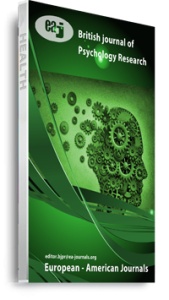The intention of this study was to investigate how the joint interaction of test anxiety, study habits and locus of control determine the academic performance of college students. Five hundred and eight randomly drawn final year students of the Federal Polytechnic, Ilaro and Moshood Polytechnic, Abeokuta, Ogun state, Nigeria were engaged in the study. They were given three questionnaires that took approximately forty five minutes to complete. The study was conducted in a classroom environment during the schools’ continuous assessment (CA) week. After collecting information from the students through questionnaires, their tests results were obtained from their faculties. These test scores were compared to the scores obtained from the questionnaires. It was discovered that the three variables positively correlate with, and significantly predict academic performance. This implies that academic performance is associated with non-cognitive and socio-psychological variables. It was therefore recommended that early intervention and proactive prevention programs that would aid the reduction of anxiety and nervousness in students be developed and implemented. Also, good study strategies such as evaluating the comprehension level, understanding the information from the text, anticipating the next thing, and knowing the purpose of learning a particular thing should be developed.
Keywords: : Academic Performance, Test anxiety, locus of control, study habits

